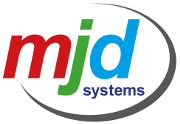What is ransomware?
Ransomware is used by cyber criminals to hack a device and encrypt the files. They then ask you for a payment to decrypt the files if you are lucky and they do give you the key. Unlike other computer viruses where they can usually be removed after infecting your device, the only way to resolve a ransomware is to have the key to decrypt the encryption, which usually only comes from paying the ransom. Ransomware is a costly cyber crime, with WannaCry estimated to have caused losses of $4 billion and NotPetya upwards of $1.2 billion. It is not something to be taken lightly and the best form of protection is prevention and preparation for what to do in the event of a ransomware attack. Anti-virus and anti-malware software is no longer enough to protect against these attacks, you need robust layered security measures, procedures and protocols, training on how to deal with suspicious emails and never postpone or cancel updates on your devices.
Several key points to ensure that you protect yourself from ransomware are:
- Always use robust antivirus/antimalware software
- Always purchase legitimate software where updates are regularly available to keep it secure
- Use layered security such as firewalls & device/network monitoring systems
- Backup your data regularly and ensure the backup you use detects ransomware attacks & protects your data accordingly
- Keep your device security and software up to date
- Use a password manager, they are very well priced and can make life so much easier for you.
The best way to protect yourself from a ransomware attack is to avoid and prevent, due to it being highly unlikely you will decrypt the files without the key from the hackers. This explains why we always recommend installing anti-virus and anti-malware software and why we encourage you not to postpone or cancel updates on your devices. This also highlights the importance of a good back up system, so that if you do get attacked by ransomware, you can restore from the last clean back up and at most lose a couple of hours to a day’s work.
We have a couple of previous articles on these points which go into more detail on Windows updates here and on back up systems here and here.
When trying to reduce your chances of downloading ransomware onto your devices practising good online habits such as using complex passphrases and changing them frequently, avoid suspicious websites or downloading files from unverified sources will also help prevent a ransomware attack. If you have any concerns about your device or network security in relation to ransomware please don’t hesitate to get in touch with the team here at MJD. Lets make IT work for YOU.
